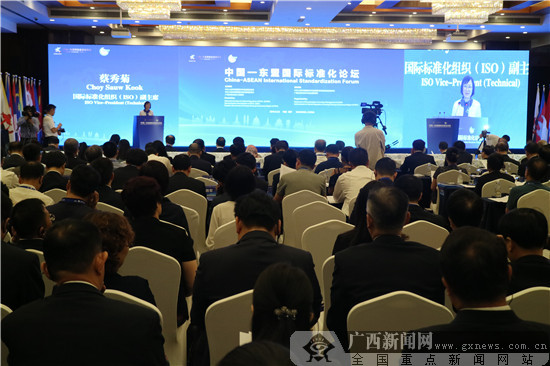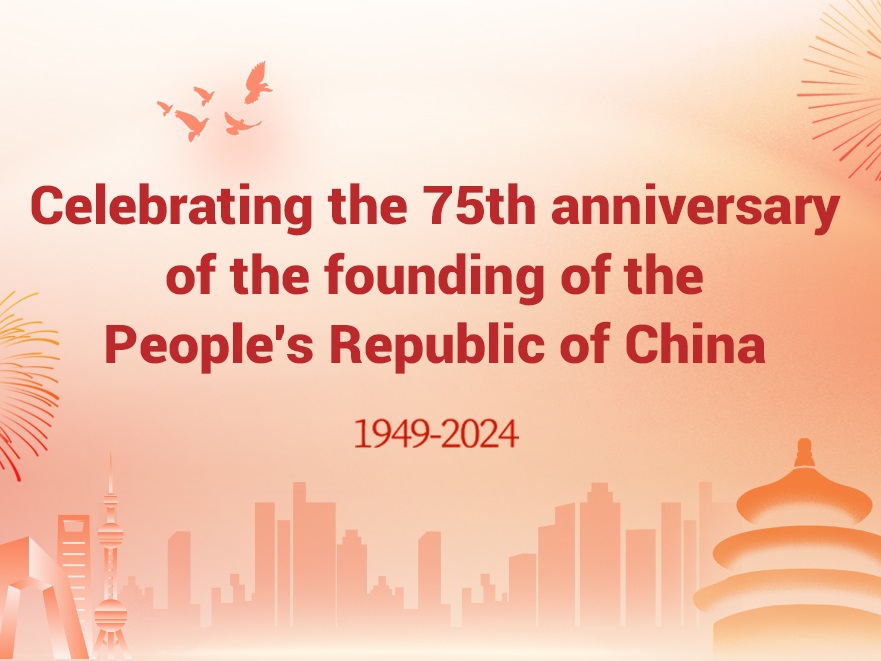China, ASEAN strengthen intl standardization cooperation

The first China-ASEAN International Standardization Forum is held in Nanning on Sept 23. [Photo by Li Liang/gxnews.com.cn]
Officials and experts from various countries reached a consensus on strengthening cooperation and creating international standards by sharing their practical experience in standardization development at the first China-ASEAN International Standardization Forum, which was held in Nanning on Sept 23.
According to Tian Shihong, deputy director of the State Administration for Market Regulation, China has signed 92 standardization cooperation agreements with 52 national and regional standardization institutions and international organizations. Among them, the standard business scope of RMB cross-border payment systems extended to 159 countries and regions.
In ASEAN countries like Cambodia and Laos, China promotes standardized technologies and management of farmlands, seedlings, and planting, increasing the average crop yield by about 17 percent. China has also set up nearly 300 ISO/IEC international standards with ASEAN, South Asia, and Central and Eastern Europe in transportation facilities, construction machinery, petrochemicals, information technology, energy conservation, and environmental protection.
The forum also adopted the China-ASEAN International Standardization Cooperation Nanning Initiative, which states that China and ASEAN countries should focus on the leading role of standardization in promoting economic, trade, and technological innovation, promote the compatibility of standard systems, as well as strengthen formulation and implementation of international standards in the field of sustainable development, such as environmental protection and green low carbon initiatives.
Choy Sauw Kook, vice-president of ISO, said at the forum that China and ASEAN countries should develop standardization, reduce transaction and compliance costs, as well as overcome technical barriers to trade, thus promoting stable global economic development.


